Hindi Movie Review: Article 370 is a solid spy thriller undone by relentless political posturing
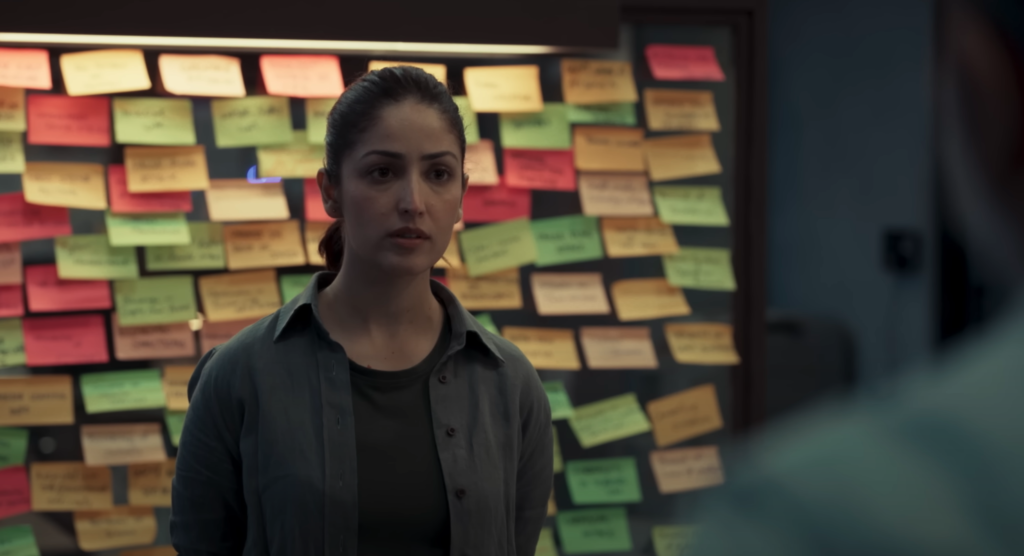
Following the recent Main Atal Hoon, Aditya Suhas Jambhale’s Article 370 is the latest in an election season wave of Bollywood films that celebrate the accomplishments of the BJP, under the thin guise of a uniting sense of Indian nationalism. Unsurprisingly, Indian critics have largely seen the film through the lens of their own politics; depending on whose assessment you read, it’s either a riveting political thriller or a propaganda piece liberally mixing facts and fiction. Audiences, in line with the BJP’s strong levels of current popularity and the self-selective nature of ticket-buying, have largely embraced the movie, catapulting it to box office success that caught some industry prognosticators by surprise.
As an outside observer stationed in the West, I found the movie’s politics to be entirely unengaging: too obvious and partisan to be thought-provoking, but not over-the-top enough to fuel the kind of rah-rah, saber-rattling entertainment that made Fighter so enjoyable for me. Just as I was getting into the rhythm of the story, there would come another explicit political appeal that took me out of the proceedings and reminded me that “this movie isn’t for you.” Which is not to say that I know enough to have strong feelings about the positions the film stakes out, but rather, that it adopts them with such inelegance that this interferes with the fluidity of its storytelling. A movie like Fighter goes so hard on the propaganda that it becomes part of its aesthetic; Article 370 is still trying to sell itself as a straight-ahead spy thriller, which makes its digressions into virtue-signaling feel like disruptions.
Hindi Movie Review: Crakk: Jeetega… Toh Jiyegaa has the makings of a cult classic, but runs out of gas well before the end
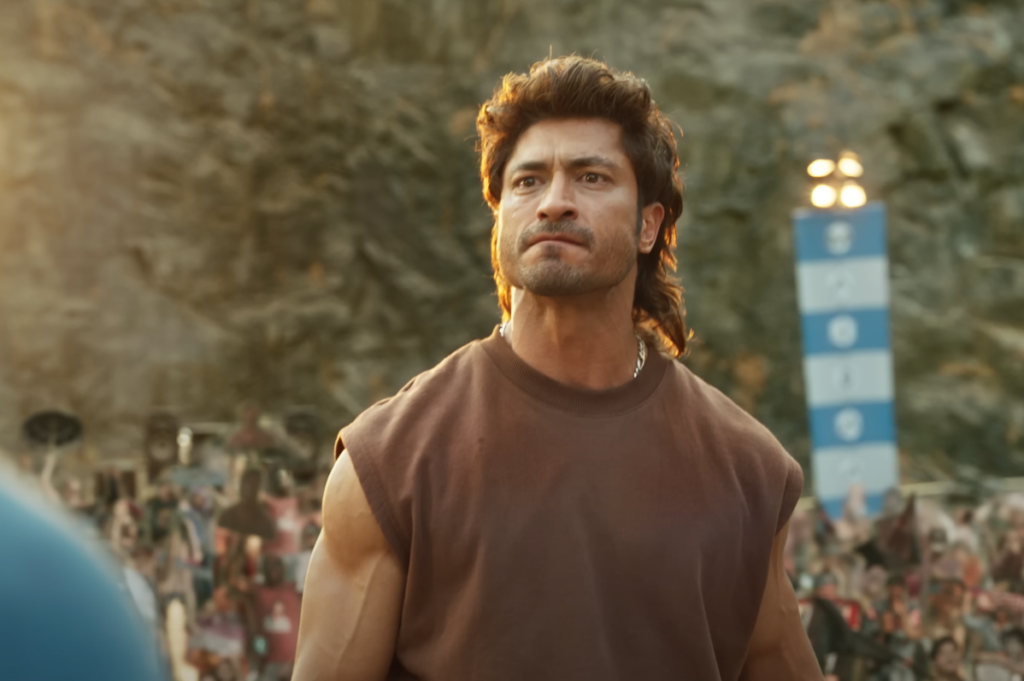
There’s an unhinged, madcap energy to Crakk: Jeetega… Toh Jiyegaa that I couldn’t help but admire, as I love movies that enthusiastically commit to concepts that others would consider embarrassingly outlandish. The film has the same kind of high-adrenaline, logic-out-the-window aesthetic as you might only see stateside in a Joseph Kahn or Neveldine/Taylor production. Which is to say, Crakk belongs firmly in the “I can’t believe they spent this much money and painstaking effort making something this patently absurd” action subgenre. Its title – the word “Crack,” but arbitrarily spelled with two k’s for no particular reason other than to suggest a film that breaks the rules – tells you everything you need to know about its overall aesthetic. If that sounds like a good time to you, it probably will be – at least for an hour or so.
The film’s manic energy, propelled both by the filmmaking and lead Vidyut Jammwal’s entirely straight-faced embodiment of the protagonist (whether he’s completely oblivious to the movie’s absurdity or just committed to the bit, we’ll never truly know), is really the main source of appeal here. The story itself is as bare-bones as action narratives come. Jammwal plays Siddhu Dixit, who calls himself an “extreme sports” junkie but for all practical purposes is really more of a daredevil with a death wish. He makes the Free Solo guy look like a garden-variety mountain climber. We meet Siddhu as he pulls off crazy stunts hanging out the windows of a train, a pastime he’s seemingly had for most of his life. Siddhu makes videos of his illegal tricks in hopes of being recruited for Maidaan, an underground competition for likeminded athletic dumbasses.
Hindi Movie Review: Teri Baaton Mein Aisa Uljha Jiya satirizes the raging A.I. debate with irresistible rom-com hijinks

The “robot woman” subgenre has certainly had a notable impact on culture worldwide, spanning landmark titles from The Stepford Wives to Ex Machina, but there are actually fewer of these movies than you’d think. The list gets even shorter if you winnow it to just those films that are not strictly about the perils of robot technology, i.e., those that attempt something more than just dystopian science-fiction. I point this out simply to say that the time is ripe for a movie like Teri Baaton Mein Aisa Uljha Jiya, which definitely has its fair share of cautionary points to make in the end, but spends much of its runtime thriving as a frothy, off-kilter romantic comedy between a man and a female-appearing robot. Especially with all the media discourse of artificial intelligence’s role in present-day civilization, this subgenre feels like the right well to go back to in our current moment. Leave it to Bollywood to get there first.
But the movie doesn’t just feel like it’s seizing upon the zeitgeist; topicality aside, it chiefly succeeds as pure entertainment. Sometimes it’s aggressively silly, yes, but this is the type of good-natured, mass-appeal amusement that moviegoers used to love before they got overly self-conscious. The setup is simple, but satisfying: protagonist Aryan (Shahid Kapoor) is a brilliant robotics programmer whose personal life lacks the excitement of his coding innovations, marked by a refusal to marry any woman his family presents to him. Fortunes change, however, when Aryan’s U.S.-based boss and aunt, Urmila (Dimple Kapadia), introduces him to her lovely assistant Sifra (Kriti Sanon) on a business trip. He’s immediately struck by her – she’s perfect for him in every way – but the only problem is, Sifra actually stands for “Super Intelligent Female Robot Automation” (brilliant movie scientists just have a way of picking the lamest acronyms ever for their inventions!). Aunt Urmila had to test her technological masterpiece on Aryan without revealing the secret behind “her.”
Hindi Movie Review: Fighter is another top-notch blockbuster crowd-pleaser from Siddharth Anand and Hrithik Roshan
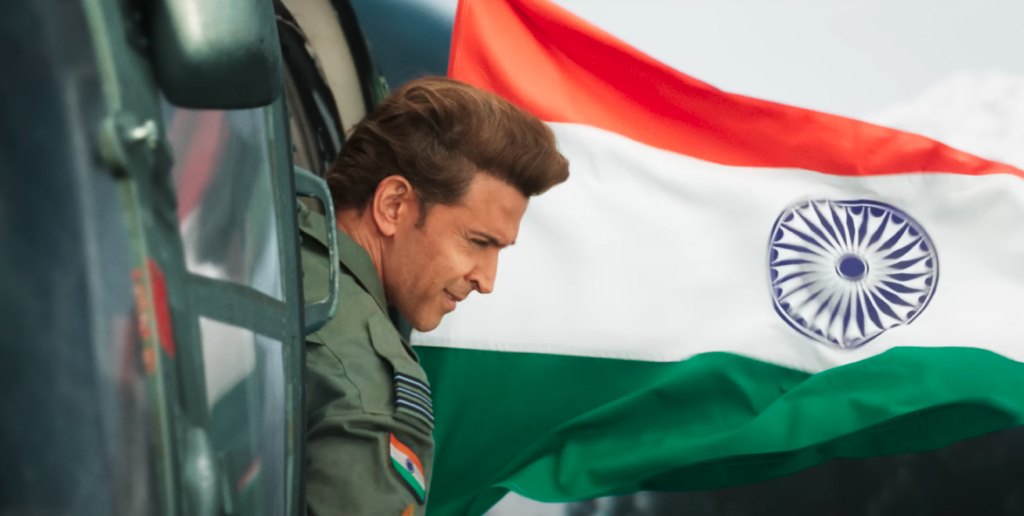
Much like its clear source of commercial inspiration, Top Gun: Maverick, Siddharth Anand’s Fighter knows how to play to audience tastes with filmmaking that’s skillful and self-aware enough that it never feels pandering in an icky way. And while it may be playing in the same sandbox as the Tom Cruise megahit, it entirely justifies its own existence, strongly executing each genre component of its masala mashup (drama, action, romance, buddy ensemble). From very early on in the movie, we know exactly how it is going to end, but that doesn’t make us any less engaged by what it’s dishing out. Fighter is perfectly calibrated popcorn entertainment.
Co-writer/director Anand brought us last year’s Pathaan and 2019’s War, and he once again proves himself to be one of Bollywood’s cleanest commercial craftsmen. That might seem like a backhanded compliment, insofar as it implies a “sanitized” body of work aimed at the widest audience possible. But I mean it as a sincere commendation: it isn’t easy to consistently deliver movies catering to mass tastes that retain their elegance and their vitality. This achievement was a big part of what made Top Gun: Maverick such a big worldwide word-of-mouth sensation, and Anand is able to achieve the same feat in his films. Yes, they follow the expected beats, but they do so in a way that reminds us of why the beats exist in the first place.
Hindi Movie Review: Main Atal Hoon is a hagiographic, overly simple biopic elevated by a strong lead performance
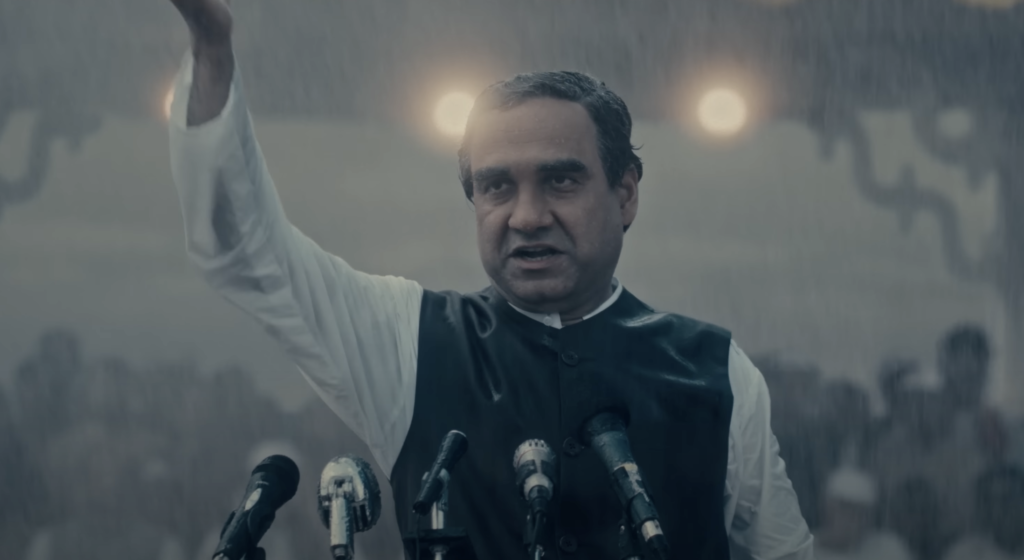
I entered Main Atal Hoon knowing just the basics of the political legacy of Indian Prime Minister Atal Bihari Vajpayee, and I left the movie only barely more educated on him. Sure, over the course of nearly two-and-a-half hours, the film takes viewers through the major beats of Vajpayee’s life – from childhood to just before his death – and captures some of the defining moments of his ascent to PM and his six years in office. But this is a quintessential example of a political biopic that aims less to examine the nuanced views, policy positions, and implementation strategies of its subject and his team, and more to simply reinforce that he was an amazing leader who forged his own path. This is pure hagiography for the fans; if you want to really learn about what made Vajpayee such a force in Indian politics, you are better off using the same amount of time reading Internet sources.
I’m far from opposed to biopics that exist mainly to celebrate the life and work of an icon, but there has to be some substance to the celebration. Main Atal Hoon may cover a lot of ground, but it never really gives the viewer all that much insight into Vajpayee’s motivations to lead or why he held the values he did. The film often shows us how incredibly strong he is in his convictions, devoting his life to the Sangh as a young man, but it doesn’t give us much of the why behind said convictions. Sure, we get a fairly paint-by-numbers depiction of British rule in India and some hints of Hindu spirituality, but little more. By not adequately illuminating the origins of the man’s beliefs, the film narrows its audience to only those who accept that such beliefs are wonderful at face value.
Hindi Movie Review: Kho Gaye Hum Kahan taps into the zeitgeist, but doesn’t offer much fresh perspective of its own
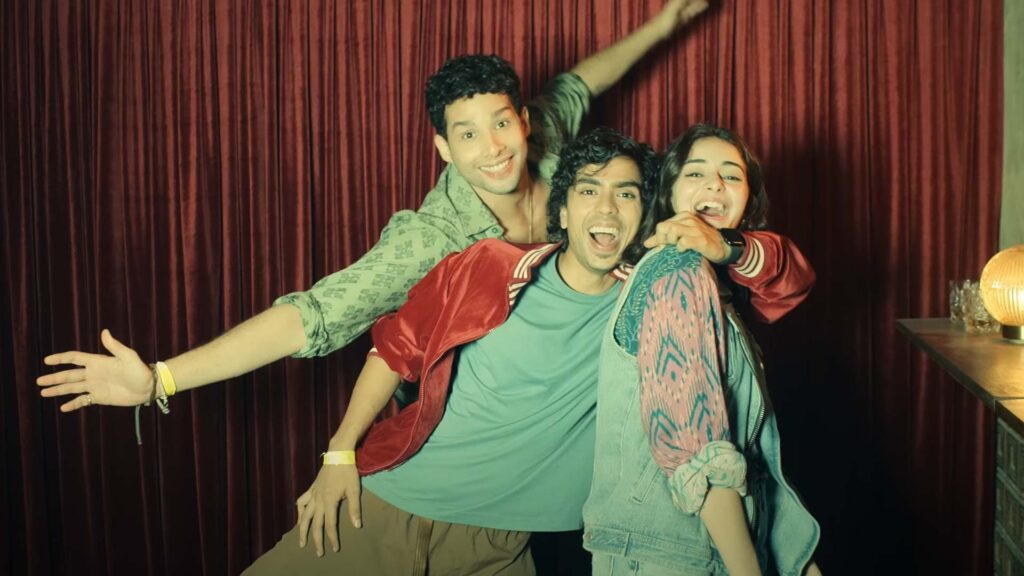
Desperate to convince you of its youthful energy but ultimately rather old-fashioned in its presentation, Arjun Varain Singh’s Kho Gaye Hum Kahan correctly identifies a lot of the sources of social unease in contemporary life without having anything vital to say about them. This is yet another “social media movie” that seeks to reflect how disconnected we all ironically are in this age of instant, accessible communication. It’s definitely a relatable topic that will broadly resonate, but do we really need another piece of media that simply reinforces the logical conclusion that the only way to escape the matrix is to put your phone down and look around?
This is an Indian film set in Mumbai, but there are very few story particulars that couldn’t be transposed onto any digitally connected nation in 2023, which is likely part of what made it an ideal candidate for worldwide distribution on Netflix. The other part, as with most OTT releases these days, is that it could just as easily pass for a miniseries as a film; it is written and directed with the slick indistinctiveness that has become the hallmark of today’s streaming “content.”
The story focuses on a group of three twentysomething friends contending with the societal pressures stemming from social media and digital identity. Imaad (played by Siddhant Chaturvedi) is an aspiring standup comedian who spends his off-nights serial-dating under a fake identity on Tinder, hooking up with dozens of women but never committing to a relationship. Imaad’s roommate, Ahana (played by Ananya Panday), has her own romantic troubles, desperate to make her “on a break” boyfriend Rohan (played by Rohan Gurbaxani) want her back by presenting a fictitious, thriving version of herself on an Instagram-like app. Meanwhile, Imaad’s longtime best friend, Neil (played by Adarsh Gourav), languishes over his “secret” tryst with a social influencer (Anya Singh), which she clearly has no intention of turning into a real, public-facing relationship.
Hindi Movie Review: Dunki succeeds as a broad character comedy, but fails as a nuanced commentary on immigration
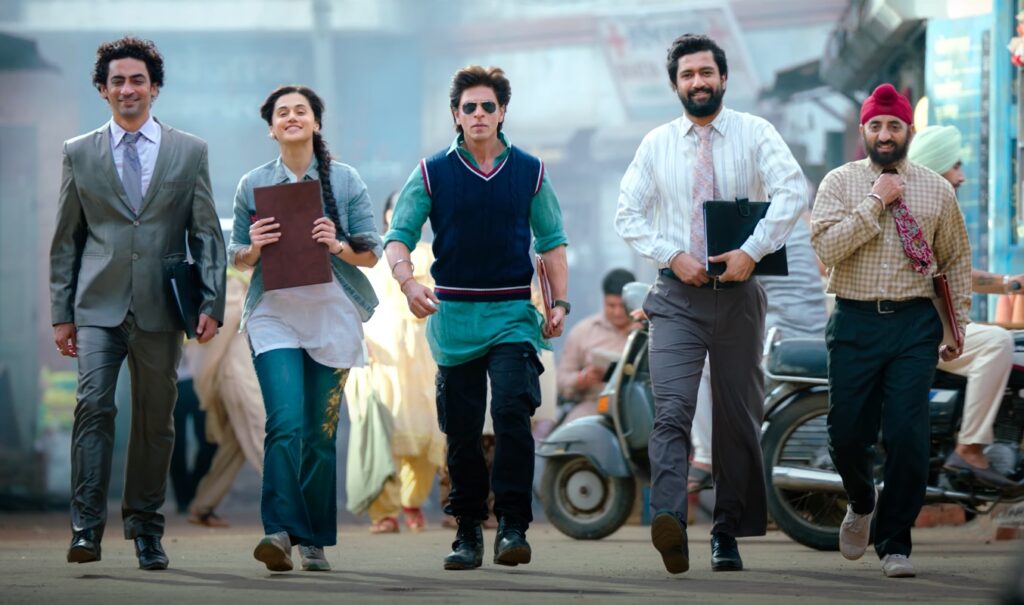
What a 2023 it has been for Shah Rukh Khan, whose return to leading roles following a four-year hiatus couldn’t have gone any better from a commercial perspective. Audiences warmly embraced his action extravaganzas Jawan and Pathaan, catapulting them to the first and second slots, respectively, for the calendar year at the Indian box office. Both garnered high marks from critics (including yours truly), as well, with robust compliments given to Khan’s performances and the overall craftsmanship of the films.
Now comes Dunki, Khan’s third and final movie of the year, and the first comedy-drama of the bunch. It’s a heartwarming, crowd-pleasing journey that’s likely to be just as much of a hit with audiences as Jawan and Pathaan, especially families looking for a feel-good outing over the Christmas holiday period. Critics, however, are likely to meet this one with more reserved praise, as its social commentary on immigration comes across as awfully simpleminded when held up to any level of scrutiny.
But let’s start with the positives, of which there are many. First and foremost, Dunki is a friendship movie/road comedy with a cast that has effortless chemistry together. After a brief prologue set in the present, we meet friends Hardy (Khan), Manu (Taapsee Pannu), Buggu (Vikram Kochhar), and Balli (Anil Grover) in the year 1995. All of the actors play both much-younger versions of themselves in 1995 and much-older versions of themselves in 2023, with relatively modest makeup and hairstyling enhancements, which is a ludicrous creative choice on its face but it somehow only adds to the film’s spunky charm.
Hindi Movie Review: The Archies is only ever “good enough” as an international adaptation
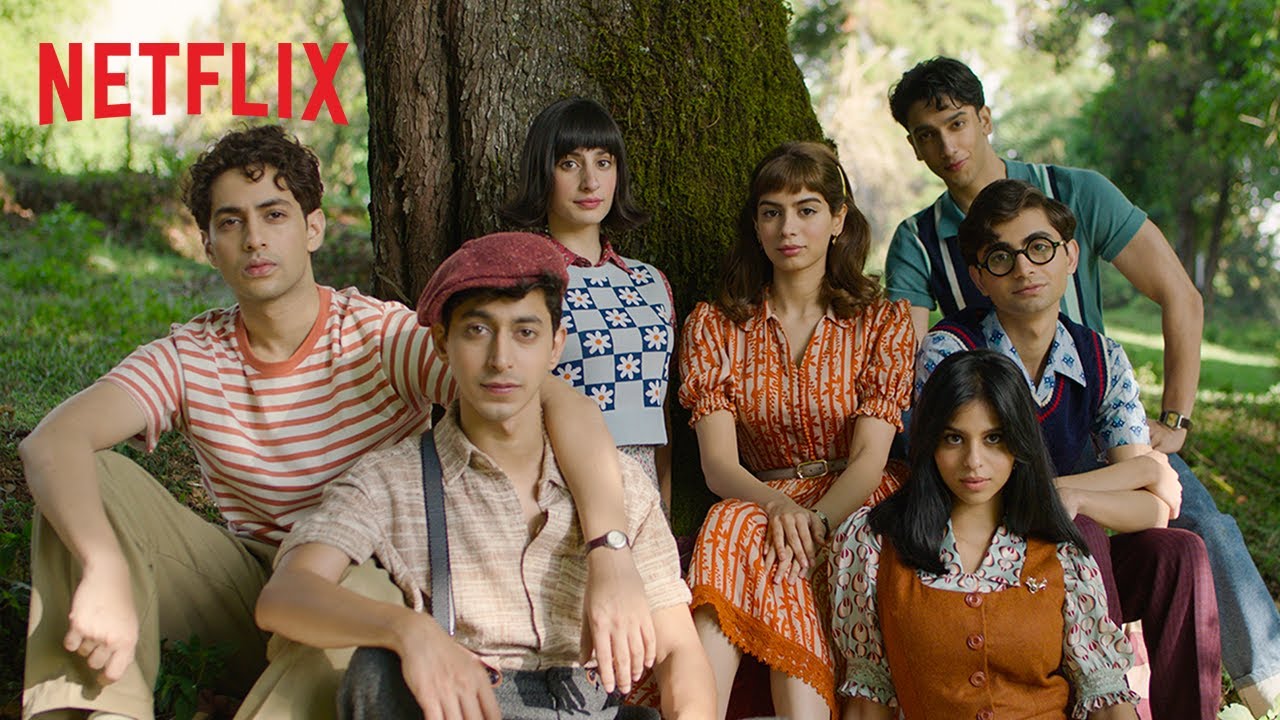
A part of me wants to approach The Archies with extreme cynicism. While the development of a Bollywood adaptation of Archie Comics apparently predated Netflix’s involvement in the project, it’s clear that the only reason this film has been born into the world, looking and feeling like it does, is the international success of Riverdale on the streaming platform. In other words, its very existence was the result of a commercial opportunity rather than an artistic imperative.
The product onscreen reflects this sense of opportunistic, rather than necessary, filmmaking. While Zoya Akhtar’s direction is handsome enough, it bears the distinct look and feel of a Netflix Original, with a fairly muted color palette and compositions tailormade for the TV and not the big screen. It barely feels like a “Bollywood” movie, either, beyond the fact that the characters (mostly) speak Hindi – and this isn’t even the default setting for consumers streaming outside of India, who will have to toggle to the film’s native tongue. This is to say, The Archies feels like a sleek, global two-and-a-half hours of “content” – it could have just as easily been cut into a miniseries as it was a movie – that happens to have been shot in Northern India.
The less cynical part of me would prefer to focus on the fact that The Archies is a mostly charming, easy-to-watch, family-friendly confection with several standouts in the young ensemble cast. It pays a good amount of deference to its American source material to satisfy those viewers with a vested interest in seeing the latest iteration of Archie, but it also doesn’t require any working familiarity with Archie Comics, Riverdale, or any of the other adaptations to be enjoyed. While there’s not a lot about the movie that’s genuinely invigorating or exciting, it’s also a perfectly pleasant piece of Saturday afternoon home viewing.
Hindi Movie Review: Animal may end up being a mess, but it’s often a rousing one, with a truly wild lead performance

Clocking in at three hours and 22 minutes, Sandeep Reddy Vanga’s Animal is the kind of sprawling opus that wins a baseline level of audience admiration through scope of ambition alone. Even as its soap opera-esque dramatics occasionally make it feel more like a television miniseries strung together for theatrical consumption than a bona fide movie, there’s something undeniably bold about the sheer amount of plot that writer/director Vanga squeezes in here.
Even if the material isn’t exactly the most cinematic at the script level, Vanga’s stylistic influences are clearly the kind of films that occupy the biggest screens: The Godfather, Scarface, Kill Bill, John Wick… not to mention all the Bollywood references I certainly missed as a very recent convert to Indian cinema. The term masala film is typically used to describe Indian movies that blend multiple genres into the same work; Animal doesn’t necessarily qualify in the traditional sense, but it combines so many stylistic reference points, watching it can sometimes feel like you’re being pulverized by an immersion blender to the head.
The movie’s strong sense of swag becomes increasingly apparent as it ramps up to its high-body count action sequences, but even before this point, Vanga indulges in his excessive, decadent sense of aesthetics as he introduces and develops the title character. I don’t know if I’ve ever seen exposition this grandiose – and I mean that as a compliment. It helps that Vanga’s leading man, “Superstar Ranbir Kapoor” (as the opening titles credit him), is incredibly game to play in his director’s depraved, pulpy sandbox. His character’s name is technically Ranvijay Singh, but if there ever was an antihero who earned the moniker “Animal,” he is it.
Hindi Movie Review: Tiger 3 is bigger, more outrageous, and even more fun than its predecessors
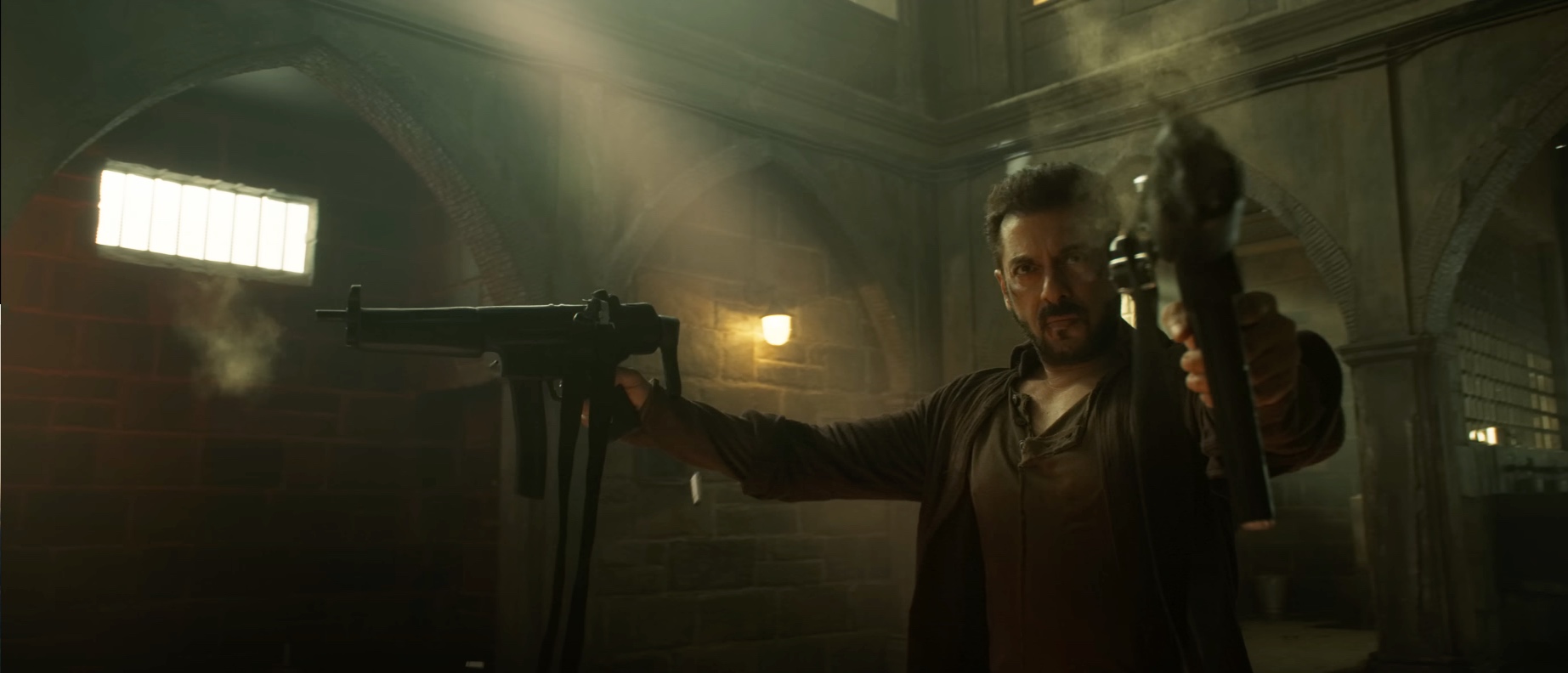
Over the span of just three films, the Tiger series has undergone the same level of metamorphosis that the Fast and Furious saga took seven entries to realize. The first movie, Ek Tha Tiger, was a relatively modest, romance-infused spy story that leaned into the relationship between leads Tiger (Salman Khan) and Zoya (Katrina Kaif). The second installment, Tiger Zinda Hai, replaced the freewheeling, jet-setting tone of its predecessor with a much more intense, realistic, action-packed rescue narrative set in war-torn Iraq. This third film turns the knobs on both the drama and the action up to 11, delivering something much more akin to a superhero blockbuster. Salman Khan may not do as many of his own stunts here as Tom Cruise does in the Mission: Impossible franchise, but he’s definitely aiming for something every bit as spectacular.
Such a pronounced tonal shift within a single movie series can be jarring and unwelcome when the filmmakers aren’t equipped to handle it. The main reason that the Fast and Furious movies pulled off their transformation is because the more over-the-top they got, the better made they were (peaking with Furious 7). For the most part, Tiger 3 can claim success in this regard. Especially coming after the similarly-styled Pathaan, the last entry in what is being dubbed as the “YRF Spy Universe” (of which the Tiger films are also a key part), the pivot towards a more outlandish and operatic tone seems to make logical sense. But the film is also very well executed: under the steady hand of director Maneesh Sharma (2010’s Band Baaja Baaraat, 2016’s Fan), this is arguably the most polished filmmaking we’ve seen in a Tiger movie to date.

